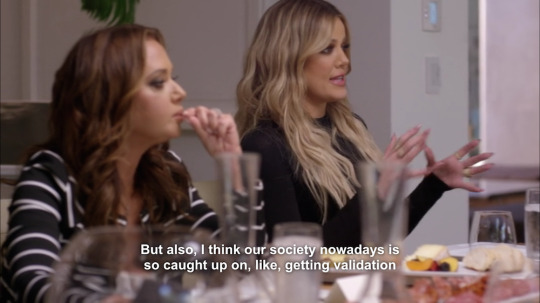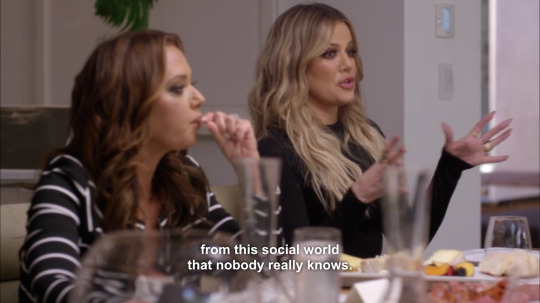"there are points in life, especially if you have creative ambitions, where selfishness is necessary"
Don't wanna be here? Send us removal request.
Text
It feels like older generations are always blaming the younger for the spread of self-indulgence. Right now, the Millennials are the most selfish and lazy and unwilling-to-achieve-things-independently generation the human race has encountered thus far. As a millennial, I think the crap economy and rapid expansion of digital culture, cultivated by the baby boomers and generation X are really to blame for my (and my generation’s) supposed “laziness”. But putting personal bias aside, it does seem like the world as it is now forces us to be selfish. We learn to invest an incredible amount of time and effort into our appearance and image. Digital culture, and by extension the world of social media, encourages and expects its users to behave primarily out of self-interest. It’s not difficult to be consumed by this cultural phenomenon. However closer our smartphones brings us, and however many obstacles we are able to overcome because of the development of new technologies and digital media, the culture that has emerged from it encourages its users to value egos and shameless self-indulgence.
This blog in itself is shameless self-indulgence. I aim to explore my own thoughts, unfunded and not anything that anyone ever asked for. The content has been suggested by nobody but myself, as I attempt to unravel some of the aspects of digital culture and its inherent selfishness.
0 notes
Link
0 notes
Text
The New York Times suggests that rise of narcissism, interpreted as a serious psychological disorder, is proof that the young people of Now are more selfish than the young people of the past. According to the research cited in this article, young people expect to be promoted regardless of job performance and more women in particular want to be associated with a famous person rather than become, for instance, a government official. Yet linguistic shifts suggest that millennials feel more obligated to work hard and lend a hand in comparison to baby boomers. While older people are cited for saying “you’re welcome” in response to a thank you, millennials more commonly say things like “no problem”. So why are we simultaneously, lazy and ready to help?
Digital media has made us more involved in each other, and each other's lives, than ever before. Those who avidly use social media are constantly been shown aspects of their friends and acquaintances lives that would not have been possible before the accessibility of the internet. What the New York Times spells out for us has been said time and time again, once by Sherry Turkle in a TED talk geared towards the shortcomings of social media. Technology is presented as a parasite which has invaded our sense of communication and learning. We no longer immerse ourselves in great tomes of knowledge like everyone did before the age of cell-phones. Instead we retreat to our mobile devices which fill the void once occupied by human interaction and “respectable” literacy. As a millennial, my immediate response to Turkle’s talk was that she was just another old intellectual that doesn’t understand the range of stimulation that my iPhone provides. But a second viewing made me realise that the general expansion of technology has introduced a divide, not unheard of pre-cellphone, but maybe less common. Our personal devices undoubtedly allow us to escape from face to face interaction, but they also provide opportunities for friends, family, business partners, (and whoever else) to connect across great distances. Social Media in particular has shrunk the scope of the world and brought us into each other's “real” lives, something that I think the New York Times and Sherry Turkle may have overlooked in their geriatric quests to rid the world of mindless smartphone users.
0 notes
Link
0 notes
Text
When working on an assignment or pursuing some query in your personal time, public libraries are a great option. Libraries in general are the ultimate resource for accessing all sorts of recorded information, and for whatever purpose. Yet it seems like maybe libraries are going out of style, at least for their original intention. I spend a decent amount of my time on campus in the library doing assignments, and working from my computer--but I haven’t actually perused the stacks since probably about middle school. So what’s changed since then? Obviously, when I was 8 years old I didn’t have a personal computer or the funds to order books online. But in the 10+ years since I was in attendance at Clough Elementary School, digital culture has transformed the way we access new information.
If I were to go into a library and pull 30 books from the shelves, all relating to the extinction of megafauna, I would certainly be causing a scene. Rifling through pages in search of small bits of information that I could use in my research paper is easily replaced by the accessibility the internet offers. From a quick and targeted Google Scholar search, I can pull up three articles that tell me that Megafauna thrived during the Pleistocene era, and researchers believe their extinction to be due to both human scavenging and human hunting. I can easily search through 30 Google Chrome tabs without disrupting anyone, library staff or patrons alike. This freedom to explore, bountifully and unapologetically, is a positive aspect of the selfishness which digital culture permits.
Unfortunately, writers like Nicholas Carr consider this phenomenon to be destructive to the way we think and read. Carr suggests that the accessibility of information online has made us stupid. We seek immediate satisfaction for our questions via google, without taking the time to absorb the answers. Personally, before Google (maybe this just because technically “before Google” I was like, 2) I wouldn’t have spared the time to immerse myself in an encyclopedia just to find out who invented crayons. To Carr, because we now prefer to read shorter pieces relating directly to our own interests, we have forgotten how to read Real text. I believe that the freedom of the search engine has exposed us to much more information than ever before, and regardless of the supposed “shallowness” of this information we are benefiting intellectually.
0 notes
Text
Anyone who has access to a computer has the freedom to publish their own content. A high school friend of mine has recently had the amazing opportunity to study abroad in Thailand. From what I’ve heard from her personally, and the hundreds of pictures she’s spread across a range of social media platforms, it was a very rewarding cultural experience. Naturally, the most satisfying aspect of visiting another country is trying a range of new cuisines that are less accessible (and not as tasty) back home. An online publication geared towards what college students are eating (the beauty of the internet) also thought her experiences were worth hearing about, and gave her the opportunity to write a blog post detailing the cultural significance of Pad Thai. She’s currently pursuing a degree in Biology, but thanks to the accessibility of the internet, she can write about her own selfish interests without having to commit to it as a career.
This certainly isn’t the first time that someone has posted online and ended up getting the opportunity to write for an established online community. The freedom to post what we want, offered to us via the internet, is what every self-indulgent writer needs. It’s no longer necessary to convince a publisher to take us seriously before we can share our writing. My high school friend was lucky enough to have a blog post published on a recognizable platform, but that isn’t always necessary. Tumblr, WordPress, Livejournal and an immeasurable number of other sites that encourage self-publishing are part of the reason that I’ve chosen to pursue digital writing in the first place. Writing for our own satisfaction frees us from the confines of making content desirable or marketable to companies who aim to make a profit from our work.
0 notes
Text
You know when you’re scrolling through your Facebook feed, and you follow a link to someone’s page, and suddenly you’re browsing through an album titled “Rebecca’s Baby Shower, May 2014”. You’ve never met Rebecca, but now you’ve seen that three years ago she had a gender reveal cake with dyed pink vanilla frosting inside. She probably posted this album for friends and family who weren’t able to attend the event: there’s a comment from Aunt Lisa that says “So fun! Wish I could have been there, Love from me and the boys XO”. The experience of scrolling through these personal memories is incredibly invasive, but it’s there, available online. We are free to judge what others post without actually stepping on anyone's toes. If I think Rebecca’s pink and yellow color scheme at her shower defeated the purpose of the gender reveal (in terms of celebration of a gender binary), that’s not really any of her business unless I post a comment in response to her Facebook album--even though it was never really any of my business either.
This brings to light the possibility of over-sharing on social media. PsychCentral was kind enough to construct a five point guideline on how to avoid this phenomenon, with suggestions like “use private messaging for resolving conflicts” and “prepare yourself for negative responses”. While maybe helpful to some, this list seems like a bunch of shit that you should already know how to do from being alive in real life, but the sense of freedom we receive from the internet opens a whole new range of possibilities for what we share online. Someone who is very shy and would never be able to perform at an open mic can now share a video of them singing on YouTube without experiencing the same level of stage fright that restricts them in Real Life. Maybe this isn’t over sharing, but it still goes beyond the lines of typical social behavior for some people. When over-sharing occurs, so follows the event which I had previously described in regard to Rebecca’s baby shower: we over-explore. Suddenly, because all of this personal content is available online, we feel that we have a right to peruse it.
0 notes
Link
0 notes
Text
I have a copy of Kim Kardashian’s Selfish on my coffee table. I’ve only flipped through it maybe once, but for some reason I standby the fact that this “book” was published and sold across the world. Kim (I will be referring to her by first name because the the inexplicable connection I feel for the Kardashian family as whole), and her somewhat mystical amount of fame and fortune, has taken something that is a staple of digital culture and transformed it into print. Selfies are now self portraits, purchased for real currency and preserved on your coffee table like it’s art. An online article from the Atlantic praises Kimmy for the delicate way her media presence highlights “the subtle differences between self-confidence and self-absorption”. As for her book, “Selfish is predicated on the idea that deflecting criticism and absorbing it tend to amount to the same thing”. In other words, Kim has reclaimed the very things that the media and the consumer alike have criticized her for since the release of her first fame-inducing self exposure, her sex tape with Ray J.
Selfie culture I think is the epitome of what I’m trying to get at here. We take pictures of ourselves alone, ourselves with friends, ourselves with inanimate objects, and post them online for friends and strangers (who probably already know what we look like) to view and react to. I am without a doubt a frequent selfier, primarily due to the convenience and easy laughs that Snapchat provides. I understand the obvious vapidness of taking a photo of yourself not doing anything particularly remarkable, but once again there is the benefit of self-indulgence. Why shouldn’t I post a Snap of me using the dog filter to my Story because my makeup turned out really well that day? If my instagram is full of pictures of my own face, is that so much worse than yours which is full of shitty graffiti and boring vegan meals you’ve prepared for yourself? Self-indulgence comes in different forms, and plenty of publications like the Huffington Post have attributed selfie culture to things like--wait for it--narcissism, but I think that the problem is in the way that we receive “selfish” things online.
0 notes
Text
We can post whatever we want, as long as it does not violate any copyright laws or involve any sort of inappropriate content. There is, to an extent, total freedom online. While this seems like a positive thing at first, the autonomy of the internet often spawns a lot of hate that is diffused in anonymity. Trolls in particular, I think, are the first example of the freedom-to-be-selfish, gone wrong. Whitney Phillips attempts to unpack troll culture in her book This Is Why We Can’t Have Nice Things. She introduces this weird subculture of the internet as “offensive, antagonistic humor and general foulness” that focusses primarily around getting a reaction. Trolls prod at essentially any platform or discourse, belittling its intention, purely to bask in the deterioration of the original posters sense of purpose. Whatever selfish content the victim was previously immersed in is torn apart for “lulz”.
I’m sure any older person who thinks the internet is evil and that millennials are brainless would feel satisfied and reassured by their opinions after exploring the horrors of 4chan. But what Phillips is able to reconcile from sites like these, is that there is a purpose within trolling that goes beyond self-indulging harassment. Trolls often identify foolishness or wrongdoing in popular culture, and expose it for what it really is. Publications like Selfish are resistant to trolling because they reclaim their own criticisms.

0 notes
Text
I think the most important part of being a millennial is coming to terms with your selfishness. It’s clear that the digital age that raised us has imparted a certain value for self-indulgence that shocks those who came before us. However judged we may be, this is not necessarily a bad thing. Sure there are internet trolls who delight in the belittling of innocent internet users, but then there’s the Kardashian family that has made millions off of somehow, everything and nothing all at once. Selfishness is a tool for success, especially in a world where students are expected to graduate with a degree as well as years of experience in their desired field under their belt. The Millennials are driven to achieve more than the generations before, based off the culture we are partially responsible for. And really there’s no downside to it, after you’ve made strides towards your dreams and can post every second of the journey for the whole internet to perceive and participate.
My own selfishness, is undoubtedly at the root of this brief expedition. As stated before, nobody asked me to write about my generation and the great way that we reward ourselves for existing. It was just something I felt I needed to do, for my own satisfaction.
0 notes






